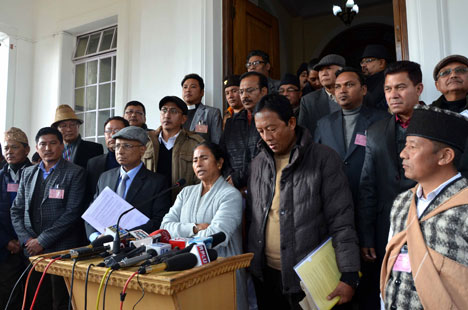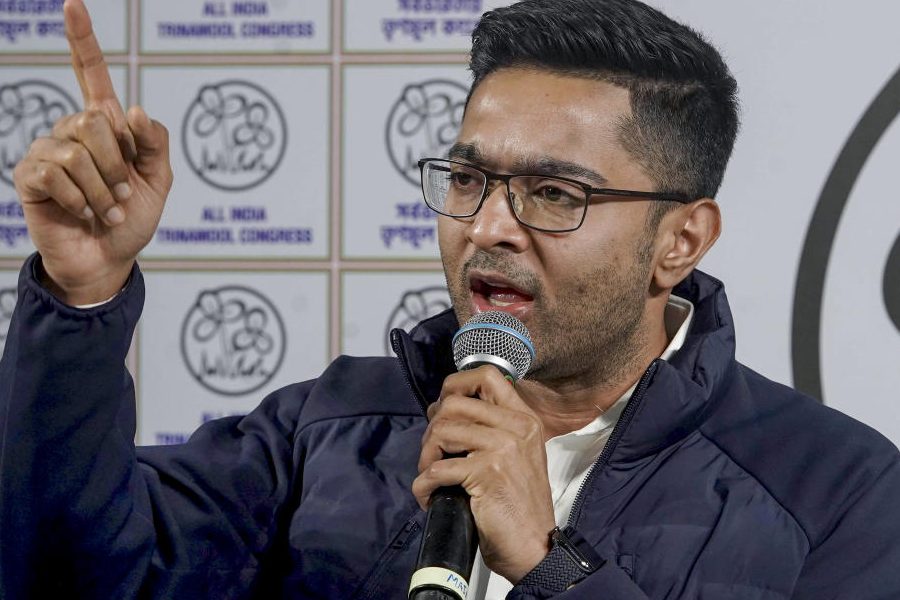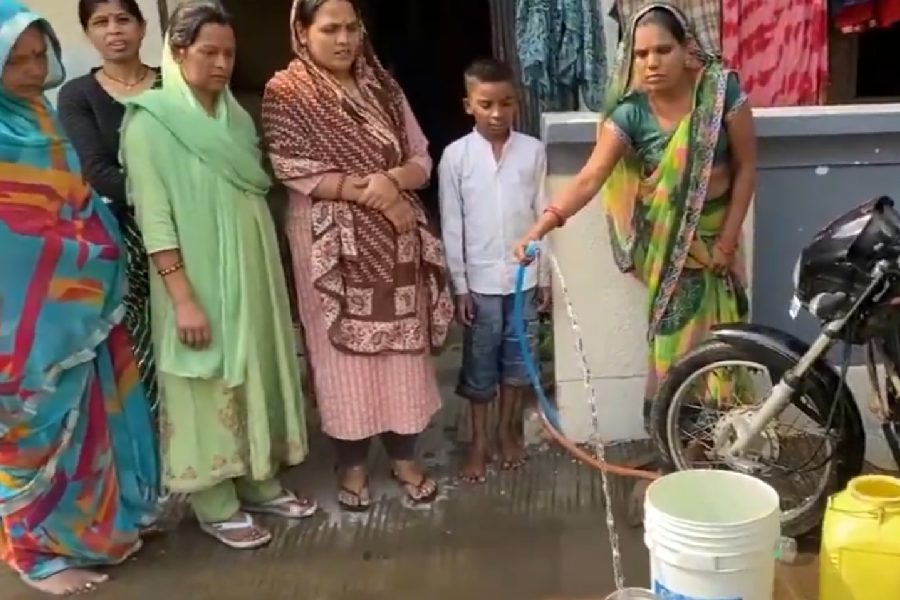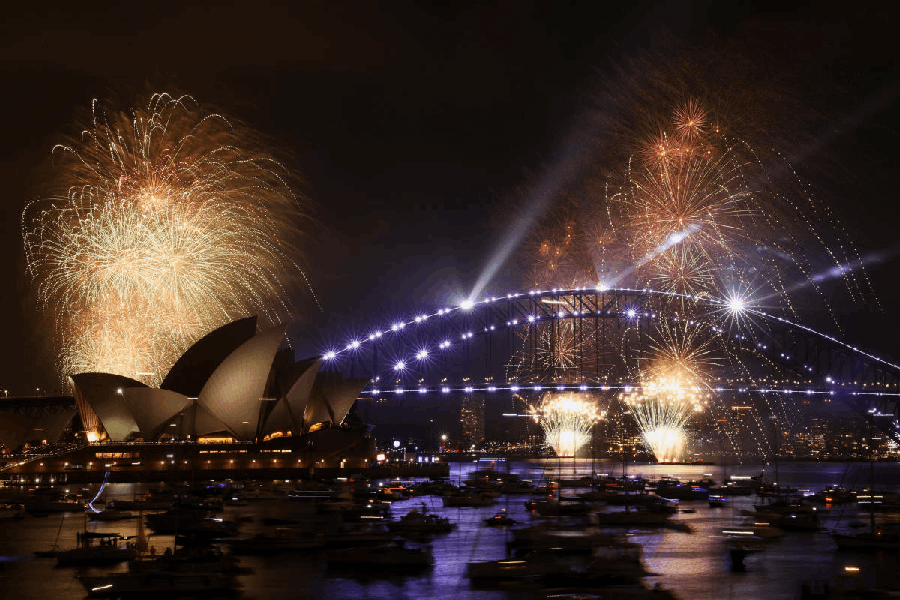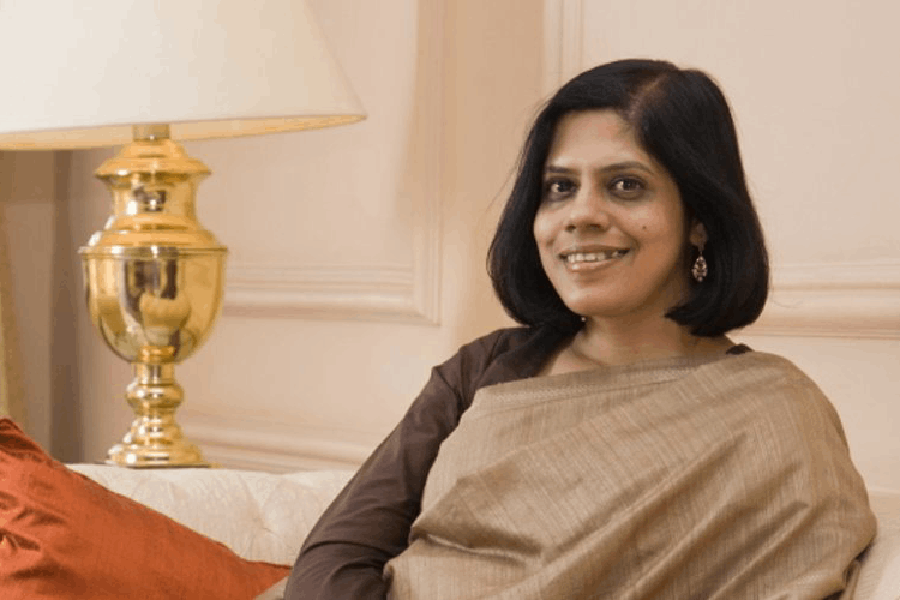
The moment she boarded the Calcutta-bound flight from Bagdogra, the energy field within the aircraft changed. Those already settled in their seats and waiting for the flight to take off got restless. A lot of craning of necks, shuffling - all of it for a glimpse of a diminutive figure wrapped in a white sari.
Seemingly unaware of the commotion she had inspired, she continued to stare out of the aircraft window and just as the flight pulled out of the bay, she fished out a handmade notebook from her jhola and started to scribble.
The flight was airborne for a while now. As the seat belt sign went off and the crew pulled out the food carts, she folded the notebook and put it back in her jhola. In less than 15 minutes, Mamata Banerjee had composed her nth poem.
"I wrote a poem on Darjeeling... one. You want to read it?" the Bengal chief minister asked me. I nodded with alacrity. I had been struggling to keep down my curiosity all along.
I accepted the notebook with trepidation. After all, it contained the first draft of a poem penned by one of the most powerful chief ministers in the country. And, of course, I was aware of my own literary handicap. I dove into the notebook.
Like her speeches, the poem was written in racy Bengali. Her handwriting, not " muktor moton" or like pearls as goes the Bengali simile, but clean, easy on the eyes. Nothing had been scratched out, no lines cancelled. The lines stretched out, coterminous with the inherent sentiment.

As I read, she waited with uncharacteristic patience for feedback. Reading done, I smiled and she started. "I really feel bad about the people of the Hills. You can't imagine how they suffered during the three-month-long strike (between June and September 2017). They lost their livelihood, they didn't have food." She was speaking of the renewed unrest after fresh demands for a separate Gorkhaland state resonated across Darjeeling.
The poem was on the unrest, its impact on people's lives, the "needless" politics, the good life of the perpetrators of the strike and a wish for long-lasting peace.
Banerjee was on her way back to Calcutta after spending 48 hours in Darjeeling - it was part of her North Bengal trip. Unlike her June visit, when protestors clashed with police, there had not been any protests this time.
During this trip, the chief minister had been mellow in her approach. She did not mention even once that Darjeeling was an integral part of Bengal. Instead, she told the people of the Hills that they would have to govern Darjeeling. And all that seemed to have gone down well.
"I come to Darjeeling as a tourist as I love this place. I don't have any other agenda," she told me, before turning her gaze to the layers of clouds.
On the afternoon of February 6, when the chief minister's cavalcade of cars reached Darjeeling, it had been all misty and foggy. Visibility was so poor along the road from Siliguri to Darjeeling that her convoy moved at snail's pace.
Sitting in the aircraft, having read her poem, it occurred to me now that given her penchant for interpreting nature, she must have had her worries then. Two days later, when the convoy rolled out again, it was bright and sunny - the kind of weather for the chief minister to claim that the dark clouds of uncertainty had vanished from Darjeeling's horizon.
In fact, during this trip, Banerjee had not mentioned the fugitive Gorkha Janmukti Morcha chief, Bimal Gurung, even once, though all along she has held him responsible for all of Darjeeling's woes. The prolonged absence of Gurung from the Hills could well be interpreted - in terms of nature analogies such as the chief minister prefers - as the clearing of Darjeeling's overcast sky.
Likewise, the sunny sky might well be indicative of the rise of the rebel Morcha duo, Binay Tamang and Anit Thapa. As the Gorkha National Liberation Front has also started playing ball, the Bengal chief minister probably has reason to indulge in some poetry.
"I am trying for peace in the Hills. I am confident the worst days are over," said the chief minister. As if on cue, a mid-air turbulence shook up the craft, interrupted the drift of our conversation. The seat belt sign came on. And as I scampered back to my designated place I wondered - will this peace last?

